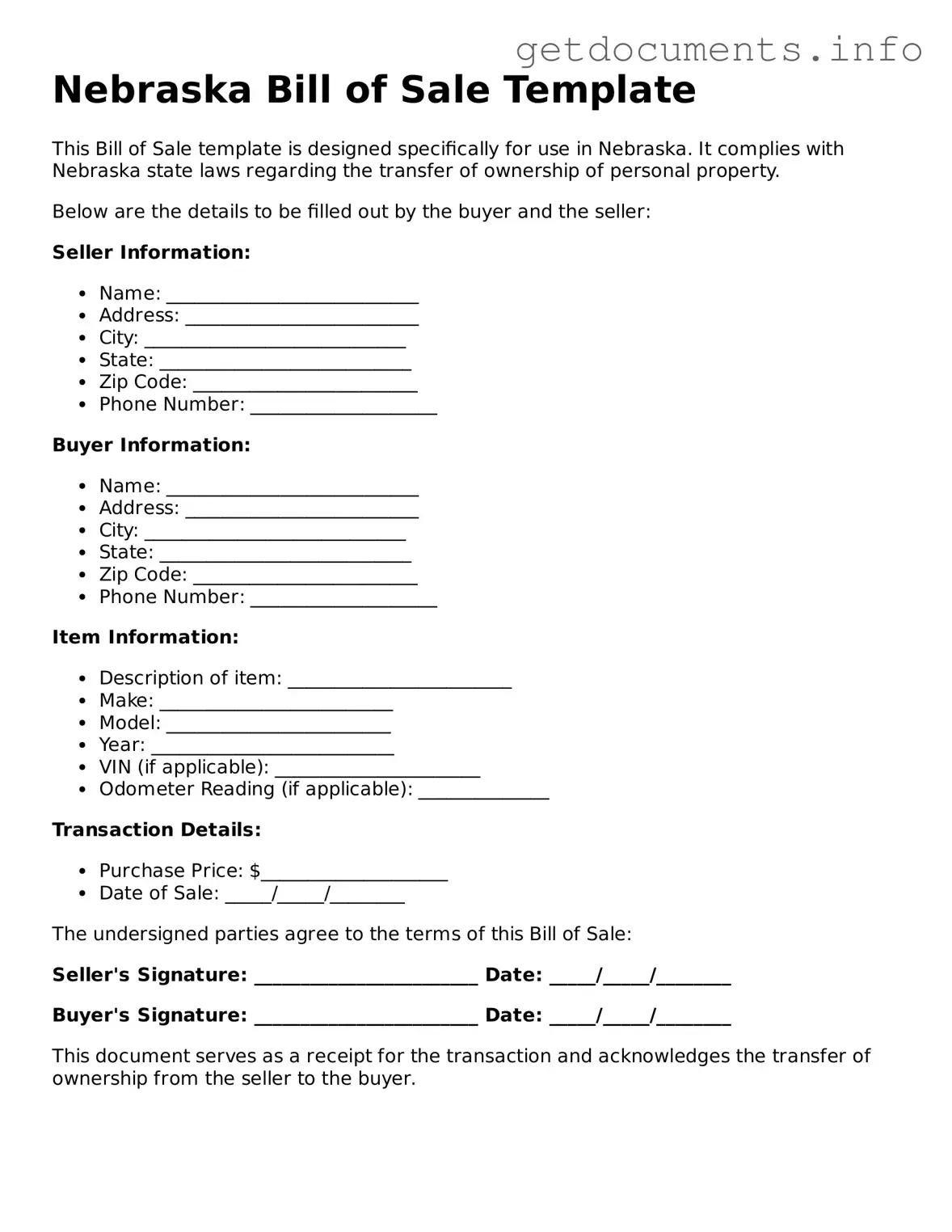Free Bill of Sale Template for Nebraska
A Nebraska Bill of Sale is a legal document that serves as proof of the transfer of ownership of personal property from one party to another. This form is essential for ensuring that the transaction is documented and recognized by law, providing protection for both the buyer and the seller. To get started on your transaction, fill out the form by clicking the button below.
Access Bill of Sale Editor

Free Bill of Sale Template for Nebraska
Access Bill of Sale Editor
Got places to be? Complete the form fast
Fill out Bill of Sale online and avoid printing or scanning.
Access Bill of Sale Editor
or
⇩ PDF File
